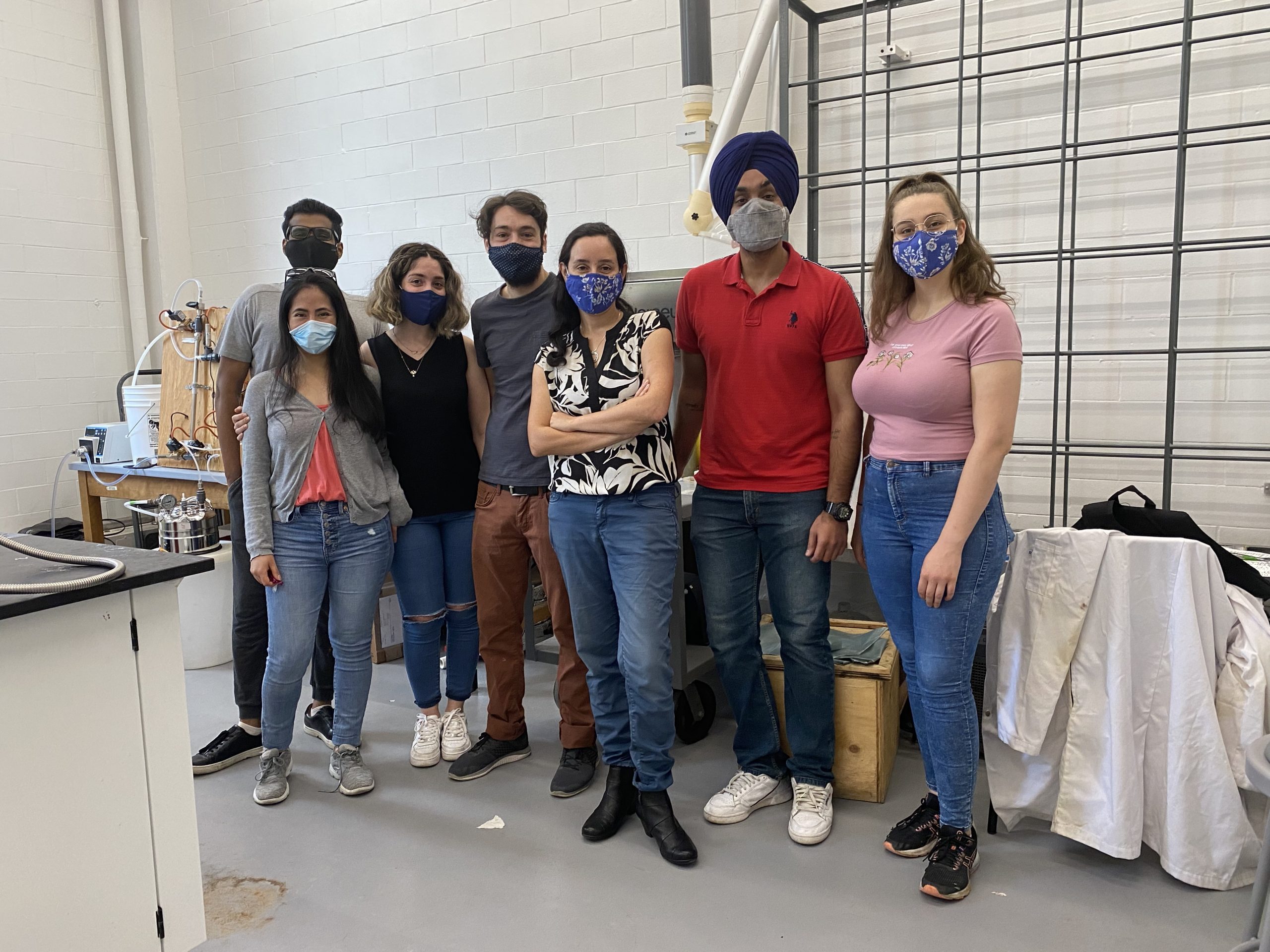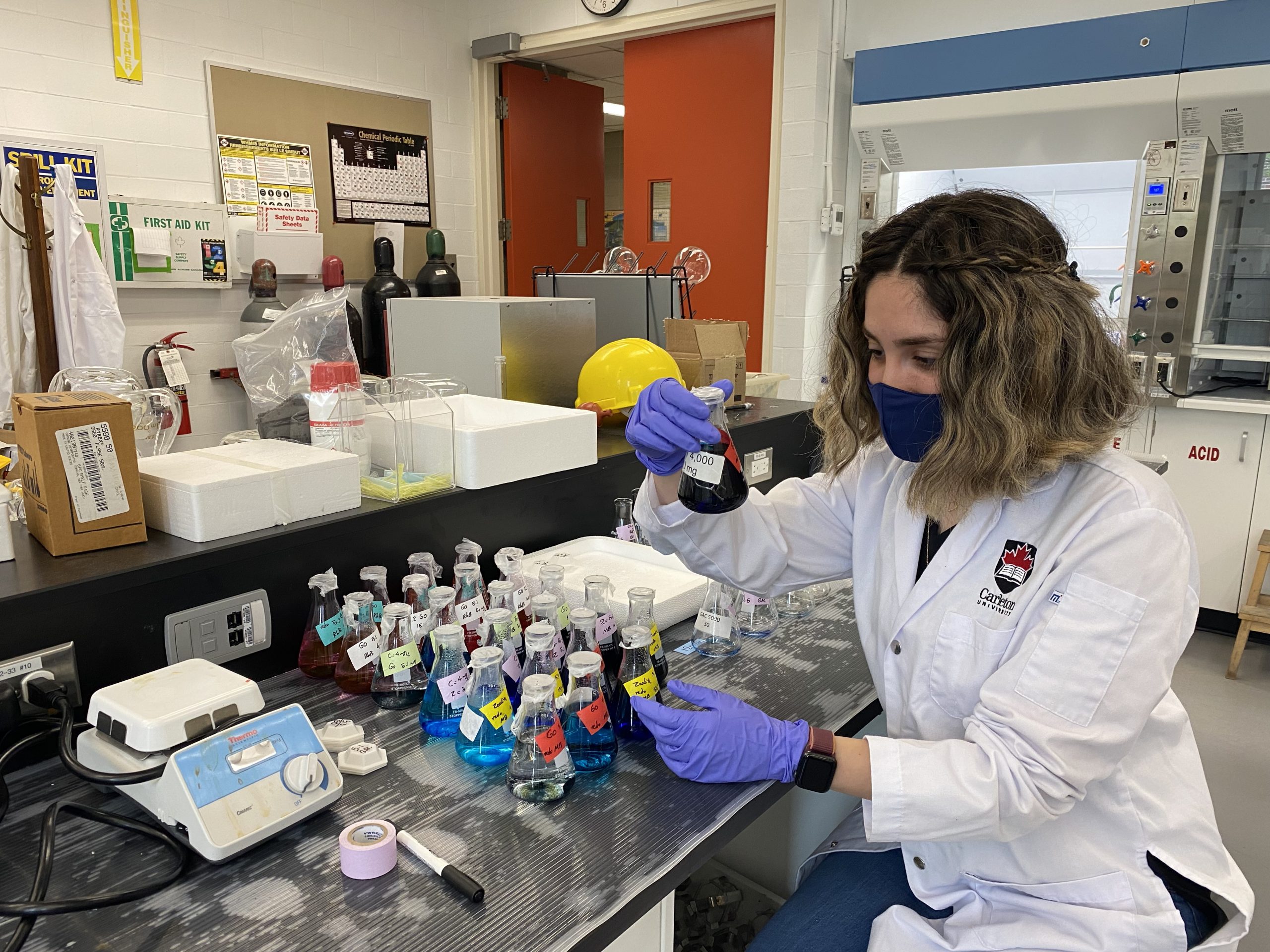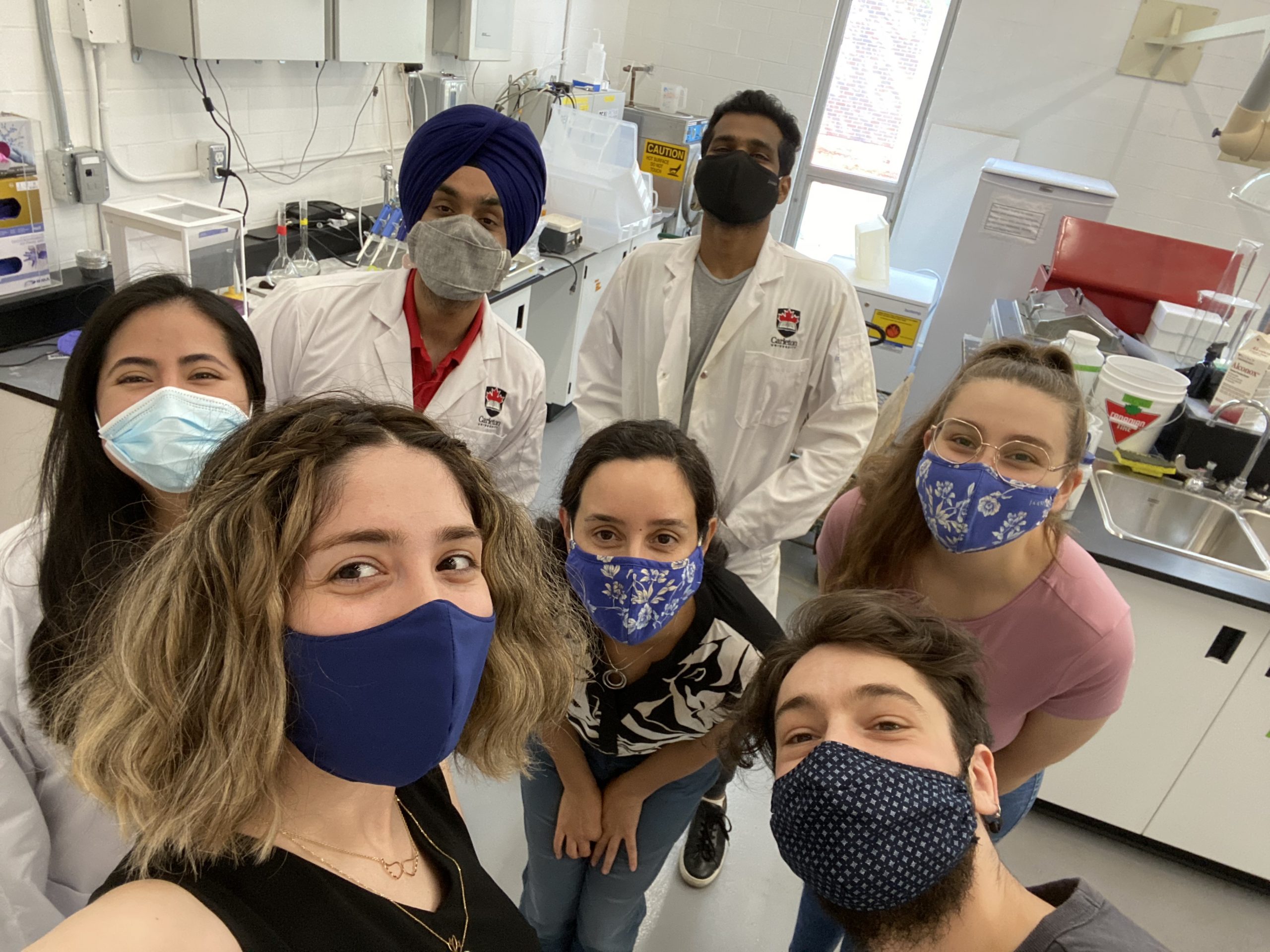Grad Research: Water Security and Wastewater Treatment
The following story was written by graduate students Niloufar Nekouei Marnani and May Alherek. They are part of Dr. Onita Basu’s research team. Want to add what your research group is doing? Send an email to fgpa_newsletter@carleton.ca.

Water security can impact the development of a country in various aspects such as health, economy, technology, and peace. However, there are many developing countries that do not have access to safe drinking water. Despite having the right intentions, many development projects in these countries fail in implementation, a lot of time because of the disconnect between the researchers in the lab, the humanitarian workers, and the targeted communities.
Dr. Onita Basu provides the opportunity to graduate students to use their water treatment knowledge for fulfilment of safe water access. Topics that our group works on include biofiltration, membrane filtration and water disinfection which some of them outlined below.
One of the ongoing projects is in wastewater treatment in Guaranda, Ecuador. The project is led by graduate and undergraduate students (Capstone project) at Carleton University. A significant shortage in proper wastewater treatment, especially considering that many of the established plants are not operating, is a major issue for Ecuador. Hence, the primary focus of this project is to plant a seed for change in this area. This is done through an engineering principles-based assessment of one of the approved wastewater treatment plants, and re-designing it considering people’s cultural practices, needs and principles, as well as the efficiency, cost and climate of the area.

Another research focus of Dr. Basu’s team is membrane technology, as it is highly efficient and has a good potential for large- and small-scale water treatment. However, membranes can lose their efficiency over time due to fouling; hence, cleaning with different chemical solutions can recover part of the efficiency and their life span. Since cleaning solutions can be toxic, and sometimes very expensive, finding cost-effective, accessible and efficient cleaning method is crucial for this technology. Dr. Basu’s group is working on improving the efficiency of membranes as a point of use technology for households through developing accessible and eco-friendly cleaning solutions and methods. This project collaborates with different non-profit organizations that use this technology to help them maximize their impact.
Integrating scientific and engineering knowledge with social knowledge and the understanding of the culture is one of the main working principles of this group. Hence, the project of enhancing drinking water quality in Longido, Tanzania is driven by a community participation approach that embeds and includes local feedback into the project implementation. Based on that, ceramic water filter was selected for the project. Nevertheless, the technology though a promising one needs some improvisation to suit the targeted community. Researchers focus on two main aspects: the first is increasing the efficiency of the filter because ,for this project, the filter is treating raw river and pond water. The second aspect is reducing its cost because the targeted community is a low-income one. To achieve these goals, the researchers work on manufacturing the filter from locally available materials and finding ways to reduce the cost associated with the filter-embedded silver nanoparticles.
Dr. Basu’s research is aimed at incorporating scientific and engineering principles with community needs to create a better global future.
To learn more about the work of Dr. Basu’s research group, please click here.

To find out more about environmental engineering graduate programs at Carleton University. please click here. We also offer a doctoral program in this area.